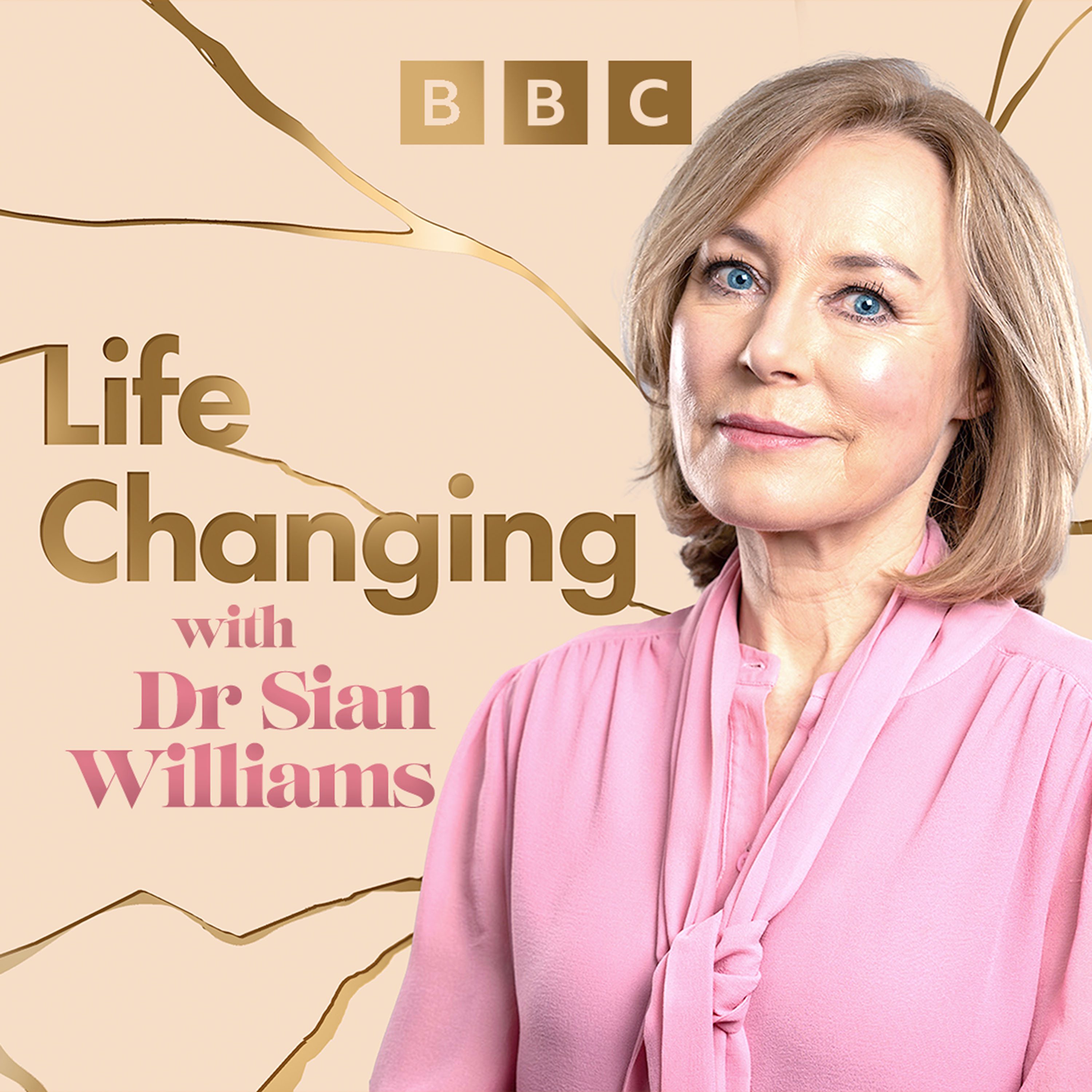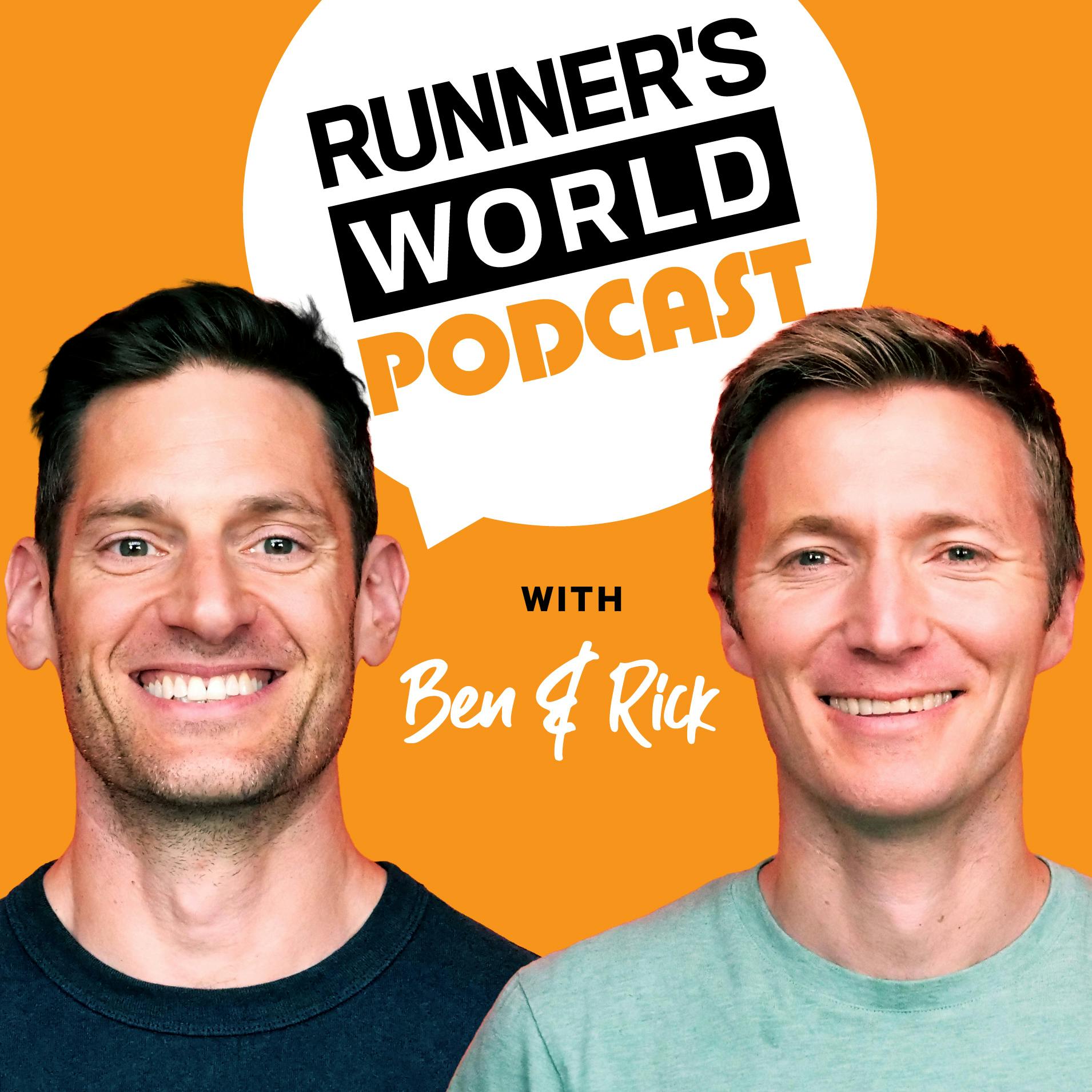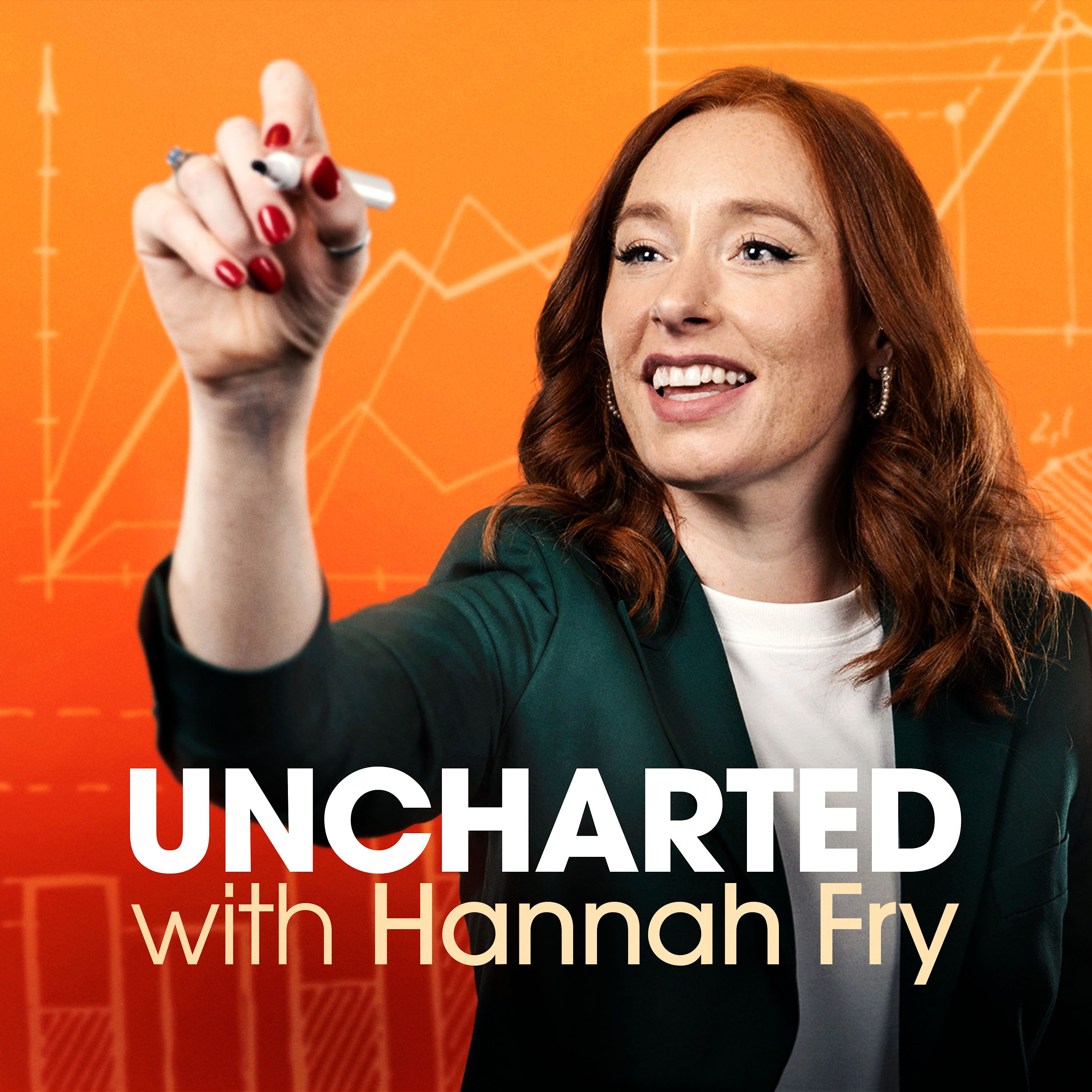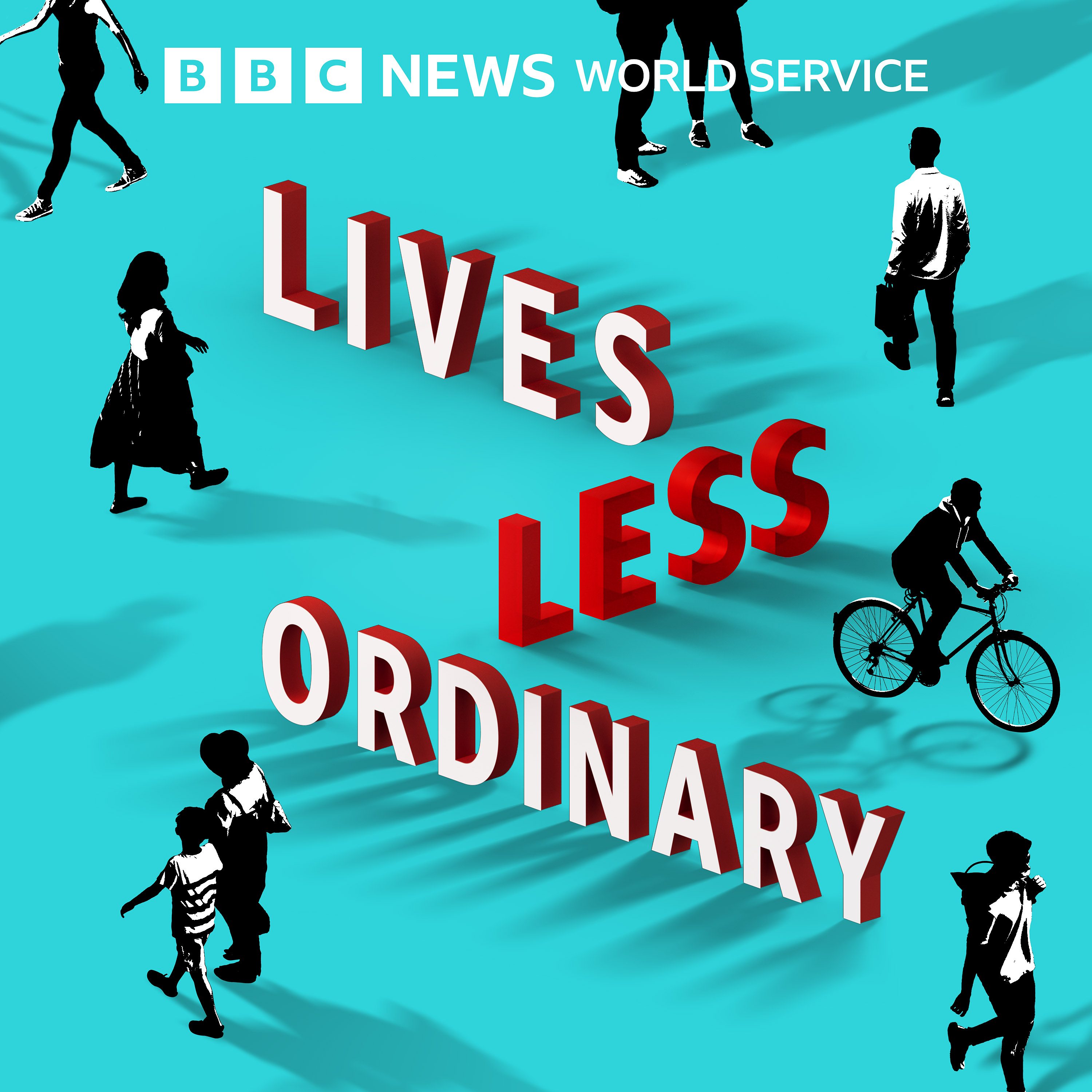
Brian's Run Pod
Welcome to Brian's Run Pod, the podcast where we lace up our running shoes and explore the exhilarating world of running. Whether you're a seasoned marathoner, a casual jogger, or just thinking about taking your first stride, this podcast is your ultimate companion on your running journey.
Join us as we dive deep into the sport of running, covering everything from training tips and race strategies to personal stories and inspiring interviews with runners from all walks of life. Whether you're looking to improve your race times, stay motivated, or simply enjoy the therapeutic rhythm of running, Brian's Run Pod has something for every runner.
Brian's Run Pod
Special Christmas episode interview with Anna Couper
Ever wondered what it takes to transition from a couch potato to a runner? On this eye-opening episode of Brian's Run Pod, we sit down with Anna Cooper, who went from despising running to embracing it wholeheartedly. Anna's remarkable journey, influenced by her family, female role models in athletics, and the power of social media, is sure to inspire both seasoned runners and beginners.
We also follow a compelling narrative of a runner transforming from couch to 5k and beyond. They share their struggles, successes and the unexpected role of Pilates in enhancing their running performance. The integration of Pilates with running not only alleviated their pain, but also improved their core strength, breathing, and overall mental wellness. And if you're wondering whether to put on your running shoes in the morning or not, we discuss the profound impact it can have on your entire day.
We wind down with some personal running anecdotes, highlighting the importance of listening to your body, having a supportive community, and finding joy in running in diverse terrains. Our favorite running gear also gets a mention. As the holiday season approaches, Anna shares her Christmas wishes and the important role her family plays in her running journey. Join us on Brian's Run Pod as we explore the world of running and foster a community that appreciates the journey as much as the destination.
Brian's Run Pod has become interactive with the audience. If you look at the top of the Episode description tap on "Send us a Text Message". You can tell me what you think of the episode or alternatively what you would like covered. If your lucky I might even read them out on the podcast.
Instagram
So you're thinking about running but not sure how to take the first step. My name is Brian Patterson and I'm here to help. Welcome to Brian's Rompod. Hello and welcome back to Brian's Rompod. For our dedicated listeners, a heart felt thank you for your continued support and, to those joining us for the first time, a warm welcome. I'm thrilled to have you on board for today's episode.
Speaker 1:As many of you, I'm always passionate about sharing the inspiring stories of ordinary individuals who've embraced running for various reasons. It's a belief of mine that these stories resonate deeply with those considering taking out running themselves. Today, I'm excited to bring you an interview with someone truly special Anna Cooper. I came across Anna through a unique connection. Her husband is a newly appointed Vicar. Upon discovering Anna's avid interest in running, I couldn't resist the opportunity to have her share her journey on Brian's Rompod. So, without further ado, let's extend a warm welcome to Anna as she joins us here on Brian's Rompod for the second time. Welcome, anna, and thank you. Thank you very much for coming onto the podcast for the second time, because I know we did have a few sort of like technical issues last time, but thank you very much for coming on. Anyway, as I do with many of our guests. I'd like to start by going at the beginning as to I think I'll ask you last time as to what was your experience of running and exercise at school.
Speaker 2:Yes, and I think that was the one where I felt most exposed actually answering that question, because the reality is, my experience at school wasn't particularly great. I'd hated running. I used to dread cross country the fitness tests. I don't know if they still do those, since we have bleep tests.
Speaker 1:Yeah, I think they do.
Speaker 2:Literally would make me feel nauseous beforehand and I think part of that was as I grew up. I became very self-conscious young woman and I just sensed that you had to be a certain way in and look a certain way and I just hated running because I struggled with that. I wasn't fast and the implication was you only run if you're fast, you only run if you can win the race, you only run if you're good at it.
Speaker 2:There's no pleasure in running. So, yeah, I avoided running enormously. And even athletics. People were like, oh, it's just the 100 or it's just the 400. Just the thought filled me with dread. Having said that, I enjoyed team sports. I played hockey, I did gymnastics for a time and I enjoyed those elements. But even then, when we did training, running was right up. There is the my most hated thing in training. I had a real kind of dislike of it as an activity when I was a teenager.
Speaker 1:Did you, as a family, did you watch sport, or did you watch sport yourself?
Speaker 2:Not particularly. My sister got into hockey first and then I followed her into it. Really, although my sister's younger, she was very good and I think one one match I have a really vivid memory of one of the players getting a ball to the jaw and having to come off and they're having nobody to play, and so the coach literally said get on the pitch. And I because you're the only person here old enough to be able to join the match and I was terrible, obviously had no idea what I was doing, but we think, oh, this, this could be quite fun, I might give it a go, so we would watch hockey as a family, I mean, and again, my sister was very much into it and obviously we watched it.
Speaker 2:You're watching my sister play but, generally speaking, no, not big sports watches, not necessarily football or anything like that.
Speaker 1:Not like when the Olympics came around every four years. Did you with it? You could have taken a leave it.
Speaker 2:Not massively. Yeah, I think part. I wonder where the part of it is that we're hybrid in terms of nationality, so my father's Italian, my mum's Scottish, but we grew up in Belgium, and so I've often noticed amongst my peers and even my husband when, when these events happen, there is a form of kind of nostalgic nationalism, that sense of oh, I'm really rooting for my country and my country men and women who were taking on these sports. And I guess I just never really had that sense of identity, certainly not growing up and so I didn't then necessarily have much interest in seeing any one country do better than another, and because I didn't necessarily have a strong interest in sport generally, I didn't then watch for other reasons.
Speaker 1:I don't know if you have an opinion on this, but I don't know. Going back on when we talked the last time, I was just thinking that. Do you think nowadays it's moved on in a sort of encouraging girls to get into sport? I know you have boys and it's a very different kettle of fish for boys.
Speaker 2:Yeah.
Speaker 1:Do you think they still have the same anxieties like you had?
Speaker 2:That's a really good question. I think, yes. I think the anxieties are still there. I think they haven't gone. However, I think there are a significantly greater number of female role models in sport.
Speaker 1:Yeah, yeah.
Speaker 2:Yeah, just thinking about the Olympics and the number of women that are reported on, there's more presence around and reporting on women's football.
Speaker 2:I think being able to see yourself see other women competing and competing athletically and at their absolute peak, even after having children right, I think all of these things go some way to changing those narratives that young girls are growing up with. Although the anxiety is there, I think it's much easier to break past that because you've seen and you are looking at people who have done that, whereas I think when I was younger that was less so in the case.
Speaker 1:Yeah, yeah, especially with social media and which is when it wasn't in our day. So now there is, like you said, although there's a lot of more role models, but again, at the same time, there's things like social media. That's another discussion.
Speaker 2:Yes, so in terms of adding to the anxiety as well as alleviating it.
Speaker 1:Although I do. I was the other day watching a program about Ailish Maconglant, who is a Scottish middle distance runner. Mother was a very famous distance runner, was very successful. She was a world champion at 10,000 meters or whatever, and even her. When she was at university she did an accountancy degree or something and even at school she wasn't in like massively, even though her mum was, but she did her own thing at uni and I remember her mum just listening to the program and her mum was saying she had to bite her lip a few times.
Speaker 1:And then that was her, and then it wasn't until later that she came into athletics. But it's interesting, even people who have a pedigree of successful parents in this field even them they don't necessarily follow the line until maybe later they discover it.
Speaker 2:Yeah, and you find your own path there, don't? You your own journey to the sport and the rhythm that suits you. Yeah.
Speaker 1:Anyway, let's get back to as to how we transitioned from Anna at school to Anna the runner yeah. So how did that happen? It took a long time. It took a long time.
Speaker 2:Yeah, I'll be honest, I didn't start running until my 30s. So I had my children my first in my late 20s and then my second early 30s and, to be honest, before then I hadn't even considered running as something that I would commit to or invest in. I'd go to the gym, I'd do classes, I'd even run on the treadmill. That was often just a bit of cardio before doing other stuff. But when time is really tight and when we just had our children, we didn't have a massive budget.
Speaker 2:I didn't want to be spending money on a gym that I wasn't going to, and so running felt like a good alternative, particularly because I didn't have to run very far or very fast, I could do it in my own time and it just gave me some space. I could be outside, I could breathe and I could just switch off, and so I think that was what drew me to it, to start, with a couple of people saying oh, why don't you try that? And I thought you know what? I've got nothing to lose. I will just give it a go and see.
Speaker 1:And was it just a case of putting on the trainers and just going out the door? Because obviously you've got your gym kit, but did you not follow a program at all? So what's?
Speaker 2:interesting is, after we spoke, I actually remembered that my very first attempt was a disaster.
Speaker 1:When.
Speaker 2:I said it was a complete disaster. I got to the end of the road and thought what am I doing? This is ridiculous, this is too hard. I talked about home and was really quite despondent and was like what have I done? This is how to do this.
Speaker 2:And then, thankfully, by this point, social media does exist and I decided to go online to see whether there was something I could do, and that's when I discovered the couch to 5K, and so that felt achievable. That was goal orientated, I could do it in my own time and it wasn't just an expectation that I would just walk out the door and be able to run. I think it's developed and been modeled for people who have never run before. And it was amazing for me and it took me a long time to complete that 5K and I restarted it a few times and some weeks.
Speaker 2:The three runs that you're supposed to do in that week would take me six weeks to complete, but I persevered and it's just one of those things I could keep coming back to and I could keep committing to yes. So for me that was huge the couch to 5K as a way of getting started, because I had nothing to fall back on. So I know a lot of people. They sometimes run before children or they ran as a teenager. They used to do cross country and it sounds a bit bizarre but as someone who had never really run before and suddenly not outside, it felt so alien physically, I felt so out of breath.
Speaker 2:All.
Speaker 1:I was thinking of.
Speaker 2:I'd be that person running down the street going just get to the lamp post, just get to the lamp post. And I'd get to the lamp post and put it into the next lamp post.
Speaker 1:But only like a couple of feet apart, I wasn't really going very far. Were there. Things you started to learn about yourself when you started running. So were they. I don't know how you felt it's now getting easier. Or even from a mental thing. Will power that kind of thing?
Speaker 2:Yeah, so interestingly, I think physically it didn't get easier for a while, and also we're talking postnatally as well. So my body had changed quite significantly anyway since having children and so physically I didn't really see the benefits in terms of what others might be talking about toning and feeling healthier. But mentally it was transformational in terms of that head space and although for a while at the beginning I spent most of my run thinking about the run, even that was a distraction. It took me out of the chaos of nappies and sleepless nights and things. So even though that sounds crazy that I would want that, it forced my mind to concentrate on something else.
Speaker 2:And I wasn't distracted by my to-do list or the myriad of things that I'd have to do when I got home, and that was really good for me. And then the other thing was I discovered that I'm a lot more disciplined than I thought I was.
Speaker 1:Yeah, that's yeah.
Speaker 2:And for me that was huge to be disciplined to go to run, to commit, to even doing that kind of couch to 5K session that week. In many ways and this is going to sound a bit odd, but it's really changed my approach, it even changed my work life in terms of just that discipline to do it and go and be like actually you know why I did that and I've achieved that and I'm still achieving and there's still more goals and things that I want to achieve and I don't really have that in any other, in any other thing that I was doing to have something.
Speaker 1:I'm surprised you had the energy to do it, even when your kids were so young and they were apparently they didn't sleep that well, so I'm surprised you had the energy to do it, but I think you're on that.
Speaker 2:I don't know if any of your other listeners have had young children and had sleepless nights. You move into kind of a survival mode and actually those times when you're on your own at the supermarket or moving between tasks where you don't necessarily have a young child strapped to you or needing you.
Speaker 2:It is so important to your mental health and well being. And then the added benefit of to be clear, I think. I think at that point we were barely jogging, but it was moving. It was moving with purpose and I went out and I found the energy to do those things because it made me feel better and mentally it made me feel better and I felt like I was more able to cope with the lack of sleep and the chaos of those early months.
Speaker 1:So self perpetuation.
Speaker 2:Yeah, exactly.
Speaker 1:It just gave you you fit and meant that you could.
Speaker 2:Exactly. And it gave me energy and I think anyone who runs regularly would probably say the same that you feel tired after the run, but actually the buzz and the energy that you get from running, I feel better in myself for the days that follow.
Speaker 1:So you started the couch to 5k. Maybe took you a few goes To try and do it. So I know we the last time we talked you did say that there was a kind of like a breakthrough point. So explain, talk, explain about that. What happened.
Speaker 2:So I think one achieving that 5k was phenomenal. That felt amazing and just the achievement level for me as someone who had really struggled to run for so long. That was huge.
Speaker 2:And then 5k became a bit of a block because it then became like this I have to always run a 5k and I didn't really know how to push past it. The couch 5k is brilliant as as a model to get you running, but I didn't really know what to do after that. I'd run my 5k, I tried to get a bit faster and I thought that was my next goal. I would just run a quicker 5k. But that wasn't really happening either, because some day.
Speaker 1:we're using the same route, yeah.
Speaker 2:I tried to break it up a bit, but part of my kind of my running yeah, part of my kind of running headspace is having a route that I'm really familiar with, so I don't have to think about it. So I quite like having familiarity so that I know the points at which I'm going to turn around. And I might deviate from that every now and again, but I like that kind of core because then I can switch off and I can process and do you do.
Speaker 2:You do what I need to do, kind of thing. So for a long time I just stuck at that 5k not really knowing what to go with it, and I did. I joined a running group briefly whilst we were living in Beckenham, and there someone talked about kind of intervals, having faster sprints, doing shorter runs, and I think that's when I became more aware of actually in order to extend a run or change how you run, you don't just keep doing the same thing.
Speaker 1:Yes.
Speaker 2:But it's funny again if you don't run, you don't know that, and I hadn't even occurred to me to go on social media and see what other people were saying, because I was enjoying my 5k's and it was more of that, one of those sort of oh, I'm wondering why this is not really changing. But OK, I'll just keep at it.
Speaker 1:You didn't think that having that variability might make it more interesting. No, it's interesting, isn't it? But you were quite happy to lean on.
Speaker 2:And obviously I still had young children, say, to some extent I maybe didn't have the brain power to necessarily sit down and commit to improving my running, because I was just enjoying it for what it was.
Speaker 2:But I also had a friend, a really good friend, who runs, and her name was Jenny, and I remember there were a couple of times where I stalled because I just didn't feel like doing the 5k and so I was like, well, I don't do anything then. And she basically said to me actually go out anyway. It's more important when you're running just to be consistent. If you don't want to run far, then just run 2k. Yeah, so I was like 1.5k and actually that was a real turning point for me and my running, because actually that's when I started running further Weirdly, the combination of which is up a little bit and doing kind of intervals, not feeling like a 5k every time I went for a run, freeing myself from this weird mindset that I had placed on myself and just, yeah, doing a shorter run, but maybe faster. So I'd try to do 2k but really whittle down my time. And then over time I was suddenly running thinking oh, I could, yeah, maybe I could do 6k this week and maybe I could try 6 and a half.
Speaker 2:And I just pushed things that a little bit further because I wasn't say, fixated on that one distance.
Speaker 1:Moving on to today, what's your current as the Americans say, your regime?
Speaker 2:I try to, and the the operative word is try, because obviously there's often things that pop up in times of year getting busier than others. But generally I try to run two to three times a week and I'll run between 5k to 6k and then, depending, sometimes if I haven't been able to do the runs in the week, I'll do a weekend run and generally, because I'm less time bound, I run further. I don't plan to. I plan to do 6 or 7k, but I might end up doing 8 and surprising myself, which is nice. I tend to have a kind of a clearer morning, so that I'm not rushing back Because I remember you saying that after we talked, you did 8, you did 5 miles.
Speaker 1:Yeah, did 8 and a half kilometers and it felt great.
Speaker 2:I think also the temperature had just slightly dropped and it was drizzling, which for me is like optimum running temperature.
Speaker 1:So that's what I tried to do.
Speaker 2:And then I also introduced Pilates since September because I was getting a pain in my hip every time I ran and I thought I'd look into sort of ways that I might be able to alleviate that and you need to port that, and Pilates came up as a really good way of managing the muscles and strengthening the muscles around the hip as well as the hip itself, and that's been really great. And I hadn't thought to do that before, but there was a local class and I thought I could go.
Speaker 1:So are you doing that during the day in the church?
Speaker 2:Yes, so I do that once a week and then run either side of it generally and then try and get a weekend run in as well.
Speaker 1:Yeah, okay. Yeah, you found exploring the Pilates, because I have interviewed a Pilates teacher who does the evening classes and I was just interested that how did you feel the benefits of doing the Pilates kind of straight away? Or was it something that because I know you have to be quite connected Really think about what you're doing when you're doing Pilates don't you?
Speaker 2:Yes, yeah.
Speaker 1:And then maybe it might take a few weeks to.
Speaker 2:Yeah, it definitely takes time. It's not something. Well, not something. I found overnight was like, oh, this is great, but now that I've been doing it.
Speaker 1:I'm not coming back. Yeah, this isn't right.
Speaker 2:So actually I would probably say in the last couple of weeks I've seen the benefits most. So my hip has a lot less when I run and pain hasn't gone completely but it's definitely improving and I'm sensing kind of overall core strength is better and all the things that just keep everything in place just make you feel stronger or better before. Because I think that's the only thing with running is that it's high impact but obviously in terms of your arms don't necessarily get much stronger when you're running and your core not necessarily, or that can have an impact. But I think the combination of Pilates, of running, has been really good.
Speaker 1:Yeah, because I think the one of the things is that maybe people don't focus on so much. Is that strength or that core stuff? And how that has such a benefit to someone's running rather than I'm just as guilty as anyone just not just going out running and then and neglecting that side of your fitness.
Speaker 2:Yeah, and even just the breathing element of Pilates obviously controlled breathing it surprised me a bit. Even that has an impact on my running and if I'm starting to feel really tired, just trying to manage my breathing whilst running has been really interesting and just watching that just trying different things and seeing if that helps to lower my heart rate a little bit. And yeah, it's yes, good.
Speaker 1:I know we touched on well, touched on the mental health, but also the fact that you're a Christian and I don't know whether it's something that going out, running apart from from the health aspects and well being does to what other. Do you feel are any other benefits there? So being outside that kind of thing?
Speaker 2:Yes, definitely.
Speaker 1:Yeah.
Speaker 2:It's just connecting all the dots in some ways, isn't?
Speaker 1:it.
Speaker 2:It's just being really present. You're really in the moment. I'm certainly really in the moment when I'm running.
Speaker 2:And use that space to just be and just allowing your body to do what it's doing, not over thinking, not over concentrate, and just have that time just to breathe and to pray and to process. I will often run if things have got quite stressful at work and I'll maybe do an impromptu run later in the day that I maybe haven't planned to do, just because psychologically and physically you've got the endorphins and the benefits. But actually also mentally it just gives me that time to process and to pray a few things to reframe and find that perspective again and maybe not send the email that I had drafted and come back and go.
Speaker 1:You know well, actually that's not what I meant and just yeah, just sort of getting away from something and then coming back and then, yeah, a lot of people, yeah, exactly.
Speaker 2:Well, go for a walk or yeah. Yeah, for me, I think, going for a run it switches other things off.
Speaker 1:Yeah.
Speaker 2:It hones the focus a little bit more.
Speaker 1:Yeah, I understand, because I know you're not great at listening to music, because I know you said you do tend to listen to, which is a bit the opposite to me. So, slowly, I listen to music, you listen to the audiobooks and the podcasts. Yeah, but you can do you if you are trying to think of or sort things out or like you say, pray or do maybe put a stop to whatever you're listening to? Or do you think those two things can go in on at the same time, or?
Speaker 2:This is going to sound really odd and I suspect not everyone will agree with me, but actually I will sometimes put something on.
Speaker 2:That's a name, so oh right, yeah that doesn't matter if I switch off and miss 10 minutes of it. The thing, for whatever reason, music just doesn't do that for me. I think I get really absorbed in music in a way that I don't switch off properly, whereas if I listen to a podcast and they're really familiar voices, that's really comfortable and so that often then just allows my mind to wander a little bit, and that's the time when I think, I process and I pray and I think three things, because when I let my mind wander, that's when I can get to the crux of what's really bothering me. I think if I try to proactively sometimes sit down and go why is this upsetting me so much and I try to break it down, I can be there for a long time trying to unpack it.
Speaker 1:Yeah.
Speaker 2:And so sometimes allowing my body to take over the run, to just be distracted by some voices. Sometimes that's the light bulb moment for me when I can go oh yeah, maybe it's that, maybe that's what it is. That's the niggle, that's the thorny thing that I need to unpack and that's where I maybe need to go back and then do X, y and Z to resolve it. And I don't know whether it's maybe. I am I'm an extrovert and I have introvert moments, but it's taken me a long time to be comfortable with silence. I'm not a massive fan of silence.
Speaker 1:Oh, are you All right, but do you deal with your own company, though? Yeah, I don't mind my own company, and actually I don't mind silence when with others.
Speaker 2:So, I'm actually very happy to sit in silence with someone. I'm very comfortable with that. It's when there's got silence and emptiness in silence and I feel disconnected. And so I think, particularly when I was younger, I would just always try and fill the silence. So I think it's probably just habit.
Speaker 1:Okay, okay, but not nerves. Nerves just a habit?
Speaker 2:Yeah, no, because, like I said, if I'm in company with someone, then it's very safe silence it's just. I just yeah, I quite like chatter. I like just yeah, that's it.
Speaker 1:Do you have any kind of routines that you do before you run, or will you just go straight straight? Out of the door Do you stretch?
Speaker 2:So I do stretches, nothing too intense, but especially as it gets colder, I tend to do a little bit beforehand, because otherwise I get outside.
Speaker 1:I'm like ah yeah, yeah, yeah, you don't want to risk injury, exactly.
Speaker 2:And what I love is that on the days that I know run, I will get my running kit at the start of the day.
Speaker 2:Even if I don't quite know when I'm going to go. I'm like, no, today I'm going to run, I'm going to fit in, and then sometimes I there's an opportunity and I just think I'm going to go and I'll get into my kit, do some stretching and go. I try not to overthink it too much. Part of that is because time and if I overthink it I don't get out of the door, or some other stuff comes up or an email comes in and I feel like I need to answer it there and then. So I think once psychologically I'm prepped to go my mind's on board, I do everything in my power not to let anything interrupt the trajectory of getting out of the door.
Speaker 1:Really, so can you see, although you can, you see yourself increasing the frequency of your runs, of what you think it's just at the moment because of your situation, Cause I know you've recently moved to the area and that kind of thing. So do you think it's? You're quite happy with the frequency and doing the Pilates and then the two weekly two two weekly runs.
Speaker 2:At the moment that works. I've certainly wouldn't rule out running more often. And then my friend who's who really challenged me about getting out of the door even if I don't feel like it and not fixating on distance. Her name's Jenny and I often touch base with her about running, cause she's an avid runner and also like me in that she hopes she'll be listening.
Speaker 1:Oh, hopefully. Yes, I did tell her about that, so you should take, take, a listen.
Speaker 2:She's been great and actually having that accountability and someone else and I know that she committed to running every day for a while and has really seen benefits from that, and so it's tempting to give something again and think oh.
Speaker 1:I do that quite a lot. So Jenny will be like, oh, I've done this and I'm like, oh, I should run.
Speaker 2:She probably doesn't know that. She should probably listen and be like oh, they explained that.
Speaker 1:Yeah.
Speaker 2:But it's great cause. Actually I do follow a couple of people on on social media who who run and things like that, but actually I think it's the people that your friends with, often it's the people around you, that kind of encourage you to get out there and go for a run or tell you about what they've done and you think, oh, might give that a go, but for the moment is just fitting in.
Speaker 1:Yeah.
Speaker 2:Okay, but be a wooden rule out. It made me next year, but I'm like, oh, I've done it. I did it every day for them. Yeah.
Speaker 1:All because I know again, when we last taught you, you thought maybe a goal might be to do a half marathon.
Speaker 2:And I said, talked about the cabbage patch, which is a local run here, which is a 10 mile, so which I am really tempted actually, and after we chatted I said to Simon my husband was like, oh, apparently this is 10 mile run and I genuinely think that's something I could work towards.
Speaker 1:Definitely, definitely, and it's quite flat.
Speaker 2:Yes, I know you said that. I thought that appeals yeah. So, I think after I did my eight and a half K I thought oh you know what? Actually, it's not beyond the realms of the possible to aim for something like that. And I think it's just that commitment and consistency, isn't it?
Speaker 1:Yeah.
Speaker 2:And I think that's a good thing finding a running plan that I can work towards and explore different ways of extending my runs step by step. But yeah now I am, I will be taking it to the next round.
Speaker 1:Definitely definitely brilliant. Brilliant, do you? You said your friend Jenny. Is she your role model to a certain extent?
Speaker 2:Yeah, she's got a role model and accountability. I think, like I said before, it just really helps to have someone who gets it and he also enjoys running but also has tough runs as well, and you can have that coffee and talk about it. And yeah, I think certainly my running improved considerably whilst we lived in southeast London, and some of that's in no small part because we would talk about it and we would talk about what we'd been achieving and what we were trying and, I think, someone who shows an interest in your running journey is a real encouragement as well.
Speaker 2:I'm really grateful for that as well.
Speaker 1:Do you think that's what advice would you give to, let's say, someone who is starting on this running journey? Do you think that's one of the things that would help or encourage them to 100%?
Speaker 2:I have to admit, when I first started running I didn't really tell anyone apart from Simon, because obviously he was saying he'd go out for a run and part of that was embarrassment and fear that I wouldn't be able to. I had a lot of blocks on whether I'd be able to achieve it and even when I did the 5K, if I had to catch the 5K, I didn't really tell anyone because, again, what if I didn't achieve it? And actually I would advise anyone to ignore what I did, because actually the running community, the people around you, are so generous and so encouraging. Everyone I've met who runs is so passionate about the benefits of running that they're generally going to cheerlead you in that and be like run one kilometer, run two kilometers. That's amazing because everything you do will be working towards continuing. The idea is, once you get started, and the truth is it's hard.
Speaker 1:Yes, it's really hard, it's hard to get out there.
Speaker 2:It's hard to keep going. I'll be honest, I felt really bad at running for ages.
Speaker 1:Yeah, do you think that? Because I don't know. I was looking at my Strava stats and this time last year I think I didn't run for three weeks. I think maybe this is the thing that I do every year. So I just December is self-indulgent and whatever, but then you feel that you can always come back to it and then you don't feel guilty that you've taken a break.
Speaker 2:Definitely. I think once you learn that, once you realise that actually you're not in competition with anybody, this is not a competitive sport. This is about you just getting comfortable and getting better. I think once you work on that discipline and just find your feet in that, you just reap the benefits physically, socially, psychologically. It's just so good for you. And if I was talking to myself 10 years ago, I genuinely just say keep going, it gets easier, and that it's okay to find it hard. I think sometimes there's this sense and especially going back to social media, there's a sense of there's a lot of people there. They're like oh, if you just do these things, you'll find it really easy. And actually you find those people who are saying this is really hard, but let's do this together because they're your people. They're the people who will be really honest. They're the people that, even if it's just for that season, just help you get into running, but don't give up.
Speaker 1:Okay, okay, and do you have on the sort of running attire? Do you, in terms of shoes, do you have a particular brand that you know, I run an A6 and I really like them.
Speaker 2:I haven't tried lots of different trainers. I think I found a pair that I really liked and I'm comfortable, so I haven't ventured out beyond. That Also scared me a little bit when you started looking at all the options.
Speaker 1:Yeah, I know. So any other running tech that you tend to no?
Speaker 2:no, to be honest, it's just headphones and a good app, a good running app that captures, calculates, does what you need it to do, and good trainers.
Speaker 1:Yeah.
Speaker 2:And that's it really.
Speaker 1:And have you had any kind of major? Oh yeah, I suppose you have briefly touched on it. It's like the injury to the hip. Have you had any other injuries? Yeah, it needs to be okay.
Speaker 2:Yeah, my knees are all right actually, but I've had it just to sprain my foot, which was frustrating because it was my own fault. I had obviously put my shoe on badly, oh okay. And I didn't know that was a thing. So I thought, oh, maybe it's just a bit uncomfortable and I couldn't.
Speaker 2:I could barely walk on it the days that followed and then take me about through your four weeks to be able to run again. And I was just kicking myself because if I just stopped when I felt the pain I would have spared myself. So my only other advice is listen to your body. If you start and you think I'm really not feeling it and you push on for a little bit and you're really not feeling it, go home. You can always try again tomorrow.
Speaker 1:Okay, now the I know. So you said you're half Italian, so have you run in Italy?
Speaker 2:I have yes.
Speaker 1:And what was that like? Because, oh dear.
Speaker 2:Yeah, so we tend to go every summer to see family catch up and we drink lovely wine and eat lots of delicious food. And so I take my running kit with me, one because, again, it just gives me that space to go off in the morning and I just go for a run. I have to go quite early, but even then by that point.
Speaker 1:You know it's cool around.
Speaker 2:But it's already kind of 25 degrees, even at kind of 6am. So you're, yeah, it's hot, so I run much slower, but I wouldn't change it. I still really enjoy going. I tend to go running and take my running gear if I'm going away for any length of time, just because I'm quite mapping out a little roots and even just going for a couple of short runs.
Speaker 1:And tends to be more motivating if you see things different.
Speaker 2:Yeah, so I think if you're somewhere really beautiful. I did a couple of work trips to Geneva and did a run whilst I was there and running around late.
Speaker 1:Oh, wow.
Speaker 2:You have those moments where you think you know this is a good way of seeing the city as long as you know how to get back to yes thank goodness for Google Maps right I think it's much harder to get lost now, thankfully.
Speaker 1:I did ask you what was your favourite meal. I don't know if you said pasta. Last time I said pasta.
Speaker 2:Yeah, there was no specifics, largely because I just love pasta and in any form or shape, with any topping, whether it's bolognese or seafood, or usually, when we go on holiday, I tend to have a lot of clams, fresh pasta, freshly made pasta with fresh seafood. I'm just perfection.
Speaker 1:And the time of day. Are you better in the morning or can any time of day? It doesn't really matter when you go out running.
Speaker 2:Better in the morning, which is really interesting because I'm not a morning person and actually running in the morning improves my morning. Yeah, it makes me more alert and I fair better during the day. I sleep better at night but, I definitely prefer in the morning. I get a bit more sluggish by the afternoon and I'm more likely to put it off as well.
Speaker 1:Okay, okay, I think that's pretty much it, and this is going to be our Christmas episode, by the way, so this is coming out on the 24th of December. So any anything you'd like Santa to bring you running wise, or you haven't?
Speaker 2:I have a really good question. What's really funny is I've actually asked for pottery classes, okay.
Speaker 1:For.
Speaker 2:Christmas, which are totally not running related. But I, my family, are great, so I think once I started getting into running they've also been real encourages, and so most of my running kit have come from my mum and my sister, in particular Lily, which sometimes works out in the States and she'll buy really nice. Oh, your sister, my sister will sometimes have kind of work trips out there and she'll go pick up some really nice under armor kit and things like that.
Speaker 2:So I would say 90% of my running wardrobe has been gifted over Christmas, holidays and various other things.
Speaker 1:Is she keen runner on?
Speaker 2:And no, actually she's not at all which makes it even more amazing, really, that she's a real, really cheerleaders by running, which is great. And vice versa. When she can, she does try to go out too, but oh, great Okay, great Okay.
Speaker 1:Thank you very much for agreeing to do it the second time.
Speaker 2:Oh, I'm pretty sure that it.
Speaker 1:The tech has behaved itself and, but unfortunately, a big drawback of this episode is we don't have a cat.
Speaker 2:We don't. He's currently sat on my windowsill. I think she was watching the same speed delivery man earlier. Oh is she.
Speaker 1:So what's the name of the cat again? Is it Cleo, cleo? Cleo is Cleo. Oh no, no, I tell you, if I told that girls that, or especially Anna, that we were going to have a cat here, she would have been here like a shot. But yeah, anyway, all the best and Merry Christmas and a happy new year.
Speaker 2:Merry Christmas and a happy new year.
Podcasts we love
Check out these other fine podcasts recommended by us, not an algorithm.

Life Changing
BBC Radio 4
Tech Life
BBC World Service
Runner's World Podcast
Runner's World UK
Buzzcast
Buzzsprout
Newscast
BBC News
Understand
BBC Radio 4
Cyber Hack
BBC World Service
Ghost Story
Audible| Pineapple Street StudiosDiz Runs Radio: Running, Life, & Everything In Between
Join Denny Krahe, AKA Diz, as he talks with a variety of runners about running, life, and everything in between.
Uncharted with Hannah Fry
BBC Radio 4
The Global Story
BBC World Service
The Coming Storm
BBC Radio 4
Lives Less Ordinary
BBC World Service
Do Epic Shit Today Podcast
Hannah Mulhern
The Rest Is History
Goalhanger
